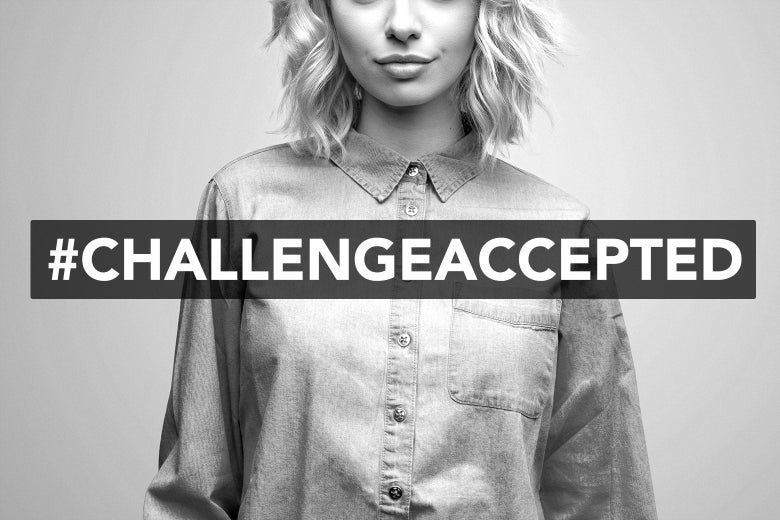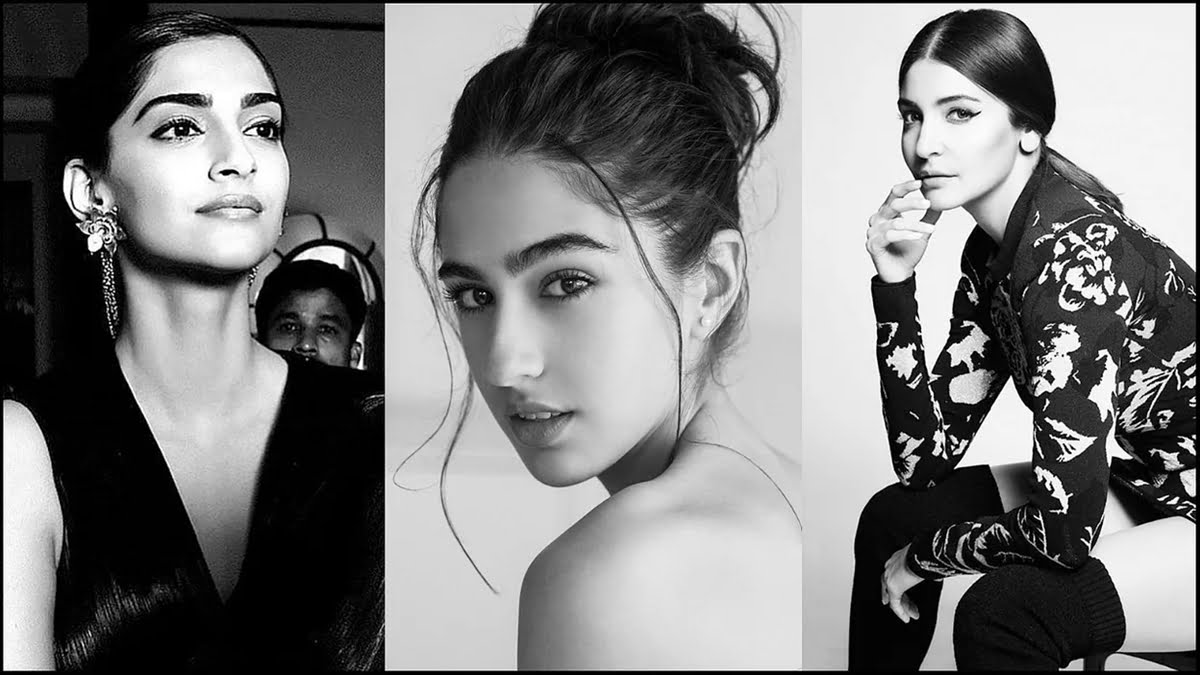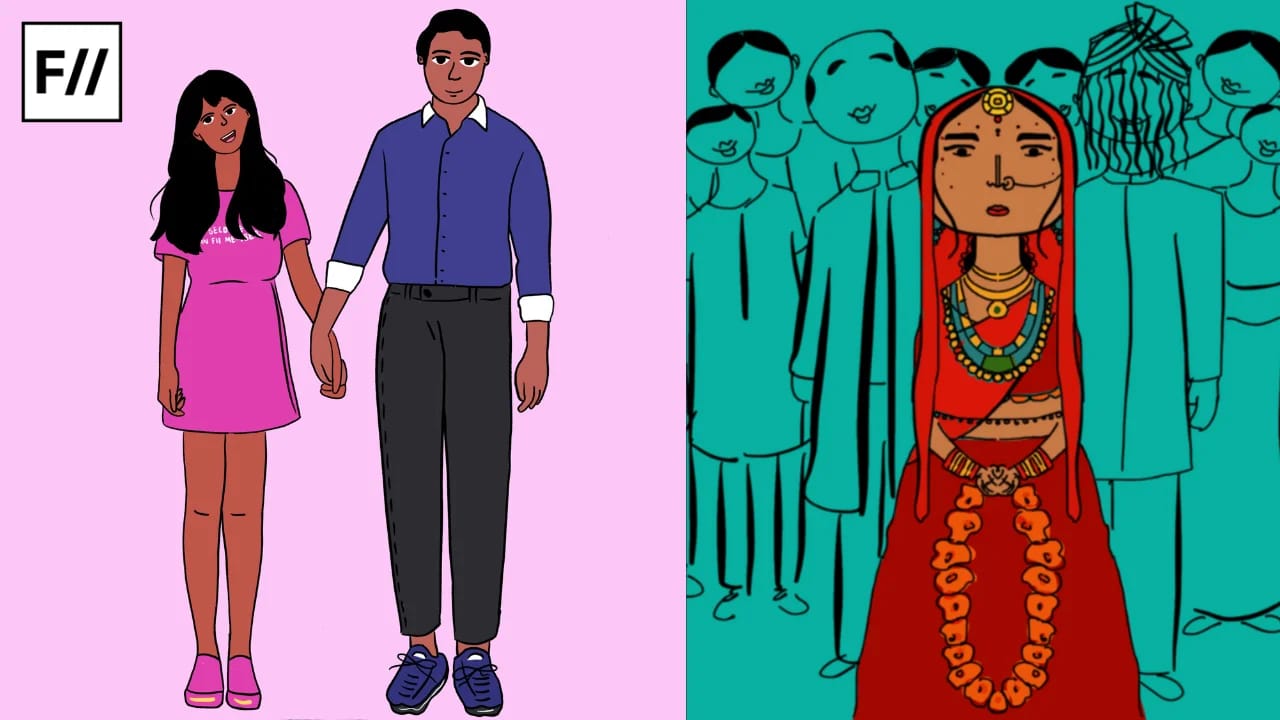Amidst an ongoing global pandemic, there are many social media challenges, games, quizzes that have surfaced on the social media and we see people jumping on the bandwagon for million reasons ranging from boredom to wanting to feel virtually connected to the world at large. One such challenge was the ‘Black and White Challenge’ that went viral on Instagram, where womxn nominated each other to post black and white picture of themselves with the hashtags ‘women empowerment’ and ‘women supporting women’. This challenge was suggested to have been inspired by many events such as the US Representative Alexandra Ocasio-Cortez calling out sexism, after Republican Ted Yoho called her a “fucking bitch” or to generally encourage a feeling of solidarity among women, acknowledging how most women are subjected to a lopsided share of domestic labor and were subjected to domestic violence, especially after the onset of the pandemic. However, the most cited genesis of the challenge appears to be the movement in Turkey where women posted black-and-white photos to raise awareness about femicide.
The ‘Black and White Challenge’ that went viral on Instagram, where womxn nominated each other to post black and white picture of themselves with the hashtags ‘women empowerment’ and ‘women supporting women’.
Following the murder of Pınar Gültekin and the deluge of ‘black and white’ photos of women victims succumbing to rampant violence appearing in everyone’s news-feeds, the challenge was began as an attempt to shift the narrative to mean sisterhood and solidarity. The movement intensified and gained momentum especially because of Erdogan’s attempt to withdraw from ratifiying the Istanbul convention. While the Convention has been called as one of the most effective ways to combat gender-based crimes and domestic violence, in Turkey, it has been introduced as the enemy of the family, something that will encourage women to desert their families and is even “feared” to increase homosexuality. Even though homosexuality is not illegal in Turkey, the restrictions on the LGBTQI+ community are severe there.
Which is why the performative social media challenge replete with hashtags and captions related to standing for violence against women and other events, seemed as just co-opting the movement.
Also read: How Social Media Has Become A Site For Sisterhood In the COVID-19 Pandemic

The overall sense we get is that all the suggested inspirations behind the ‘Black and White Challenge’ are directly linked to the injustice and inequalities faced by the women in a man’s world and this challenge (which is now being associated with a larger feminist movement), is if nothing else, at least has its heart in the right place. And to be honest, people would have participated in the challenge naively to begin with, but as debates and consciousness raising simultaneously unravelled on social media, many realised how this was fundamentally associated with Turkey and its attempts to withdraw from the Islamic Convention. Yet, it is imperative we look at the Black and White challenge from the point of view of feminist critique.
Even from the limited internet research I did, I felt like the larger point of this challenge is lost as most women who participated in this challenge, did not know what it was about, to begin with. Remember Ava Duvernay who captioned her picture as “Pretty sure this is just a cool excuse to post pix…”? I think that supports the point I am trying to make here.
Secondly, most women participating in the challenge are posting conventionally attractive (with certain make up or styling) pictures of themselves with somewhat vague captions about women empowerment, accepting themselves and supporting other women. This is where I want to bring in the point of beauty as a tool of patriarchy.
Naomi Woolf’s central argument in her book ‘The Beauty Myth’ – that which emphasises on how beauty is a political weapon of patriarchy to keep woman always occupied with self doubt and insecurities, relegated to domestic and frivolous matters, imposed by unrealistic beauty standards so they hardly have any energy left to fight their equality battles, is relevant here. Patriarchy and capitalism thrive on making women insecure by idealising certain bodies as ‘beautiful’. On the other hand, the apparently trivial, but highly sexist, ‘woman must always smile’ syndrome which emphasises on the idea of objectification of women, that women’s bodies are accessible for public interjection, subject to comments and instructions from strangers (mostly men) suggesting women to behave in certain way to appear more eye-pleasing. In this context, I feel women putting up conventionally beautiful pictures on Instagram in what seems like a benign, simple act, is in fact paradoxical in nature, as by doing so they are trying to fit into the very system of patriarchy we are trying to fight here by engaging themselves into the ‘Black and White Challenge’.
Of course there is nothing wrong with women loving, supporting each other and nominating each other to post pictures on Instagram expressing the same love, support and gratitude, nor it is wrong for women to smile and upload attractive pictures to make them feel good about themselves. It will put too high a burden on women to challenge and give up on every little thing that makes them happy, in order to not fit into patriarchal stereotypes. Essentially, everything that is not actively smashing patriarchy does not automatically have to become problematic.
However, when we are specifically taking certain actions in the furtherance of a ‘feminist movement’, we are actively making a point of smashing patriarchal notions coming in the way of woman attaining equality and therefore, in this context we have a higher burden to satisfy. Even though, violence against women, sexism etc. are issues not directly linked to beauty standards, they are all different manifestations of patriarchy and while showing solidarity in favour of one issue, we should ideally be careful to not be overcome by the other. Otherwise, equating this gesture with the feminist movement, without really knowing about the events that inspired the challenge, posting a picture conforming to the same patriarchal beauty standards we are actively trying to overthrow, is merely benign tokenism. Trivialising the actual issues such as sexism, invisibilisation of domestic labour and violence against women, is amounting to merely a ‘vanity fair’.
Over 3 million black and white pictures were posted on Instagram with hashtag #challengeaccepted in the Black and White Challenge. Many Hollywood, Bollywood actresses and other celebrities participated in the Black and White challenge posting similar kinds of pictures with similar captions and hashtags. Such participation allows women the satisfaction of participation in a ‘feminist movement’ without exactly having to participate in it. Such token gestures without much substantive guidance on actual women’s struggles for equality makes one feel that they are taking a stand for a cause. For whatever is its worth, we like such challenges because we can conveniently slate ourselves as ‘woman’s rights’ supporter’ without actually engaging in the advocacy which might result in some of us losing our social capital.
We like challenges such as the Black and White Challenge because we can conveniently slate ourselves as ‘woman’s rights’ supporter’ without actually engaging in the advocacy which might result in some of us losing our social capital.
By posting a good looking picture of ourselves in conventionally attractive dressing and make-up styles, we are unknowingly trying to preserve the social capital of our Instagram/Twitter following or a potential dating life but at the same time trying to make ourselves believe that we are participating in women’s movement, supporting and appreciating one another.
I believe that, women posting conventionally attractive picture to show her support for the ‘movement’ is a result of a lot of social conditioning about how woman should always appear pretty to appease society or primarily, the male gaze and she is constantly made conscious of her looks in every sphere of her life. Therefore, a gesture may be truly motivated by good intentions and many of are still unlearning to realise how subconsciously, subtle forces of patriarchy could cast shadow on the manner of expression of support for a cause. For instance, how fairness cream advertisements show a woman as applying for a job but getting rejected because she is not fair enough and thus attempting to sell their product using the crutch of womxn’s aspirations for financial independence.
Secondly, where women constantly face sexual harassment and bullying in online spaces, by posting a good looking picture of themselves as part of the Black and White challenge could be considered as an act of ‘empowerment’ and an attempt to reclaim these spaces.
Also read: Institutional Failures & The Increasing Reliance On Social Media To Report Sexual Harassment
While I understand this, I still believe that the feminist movement can only make true impact if we start eliminating the forces of patriarchy from it and start celebrating women for who they truly are and fight for each other’s equality in real life. Instead of posting a pretty picture of oneself, we can post our stretchmarks or the sick-looking eyes we get without eye-makeup. We can post pictures of women (along with suitable captions) from history or even in today’s world, whose achievements are not celebrated enough in a predominantly man’s world. We can ensure we make equitable spaces for the LGBTQIA+ community members who also continue to be marginalised in a hypermasculine world. We can give shout-outs to and support local womxn entrepreneurs and their small businesses, encouraging more people to source their requirements from these local businesses. We can share necessary feminist therapy contacts to decondition ourselves and truly fight for women empowerment, rather than just engage in vague symbolism of putting up vanity pictures.
Siddhi graduated from National Law School of India University, Bangalore, 2019. She is a part-time lawyer and full-time radical feminist. She can be found on Facebook and Instagram.
Featured Image Source: Rajexpress.com




